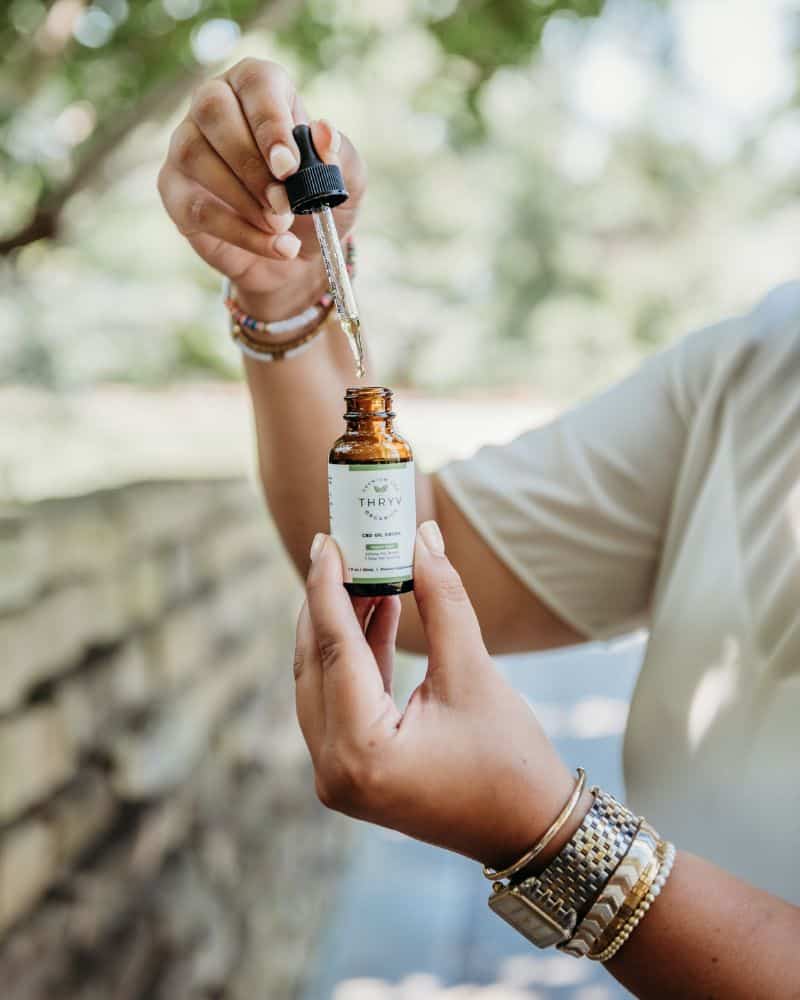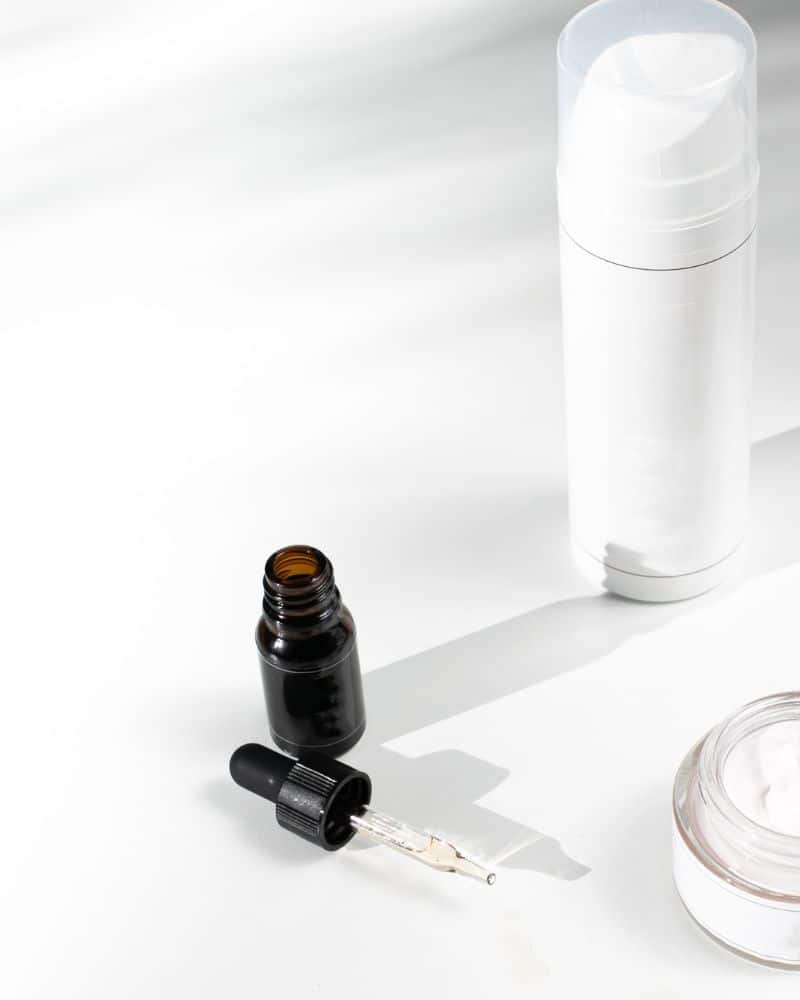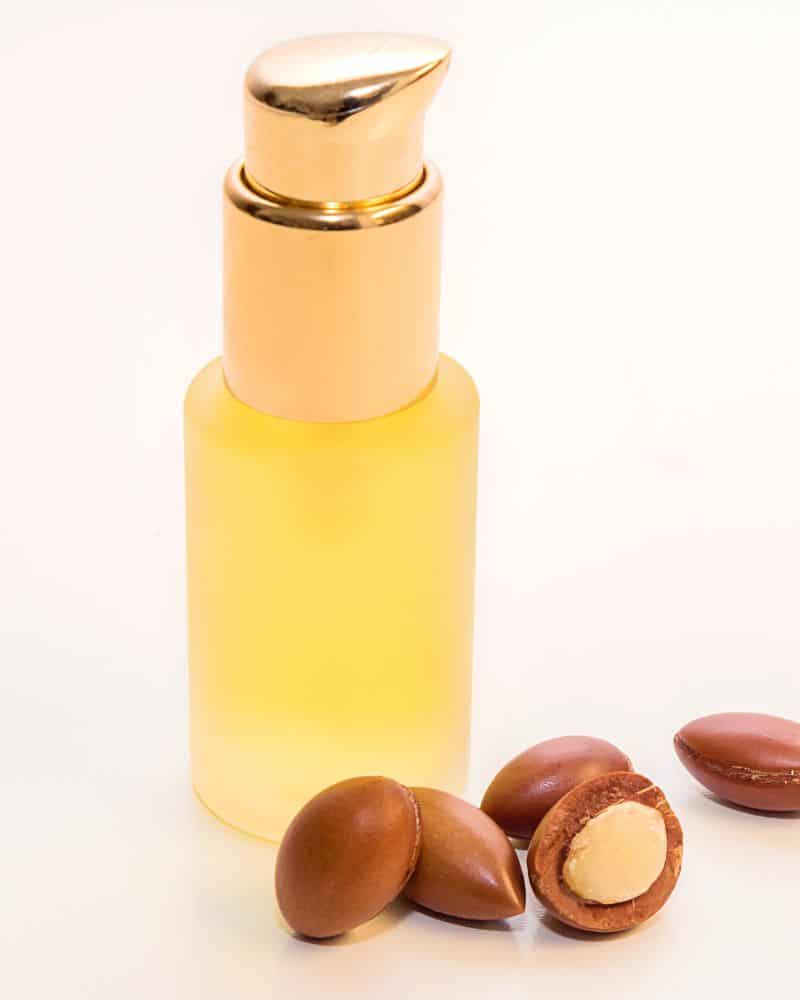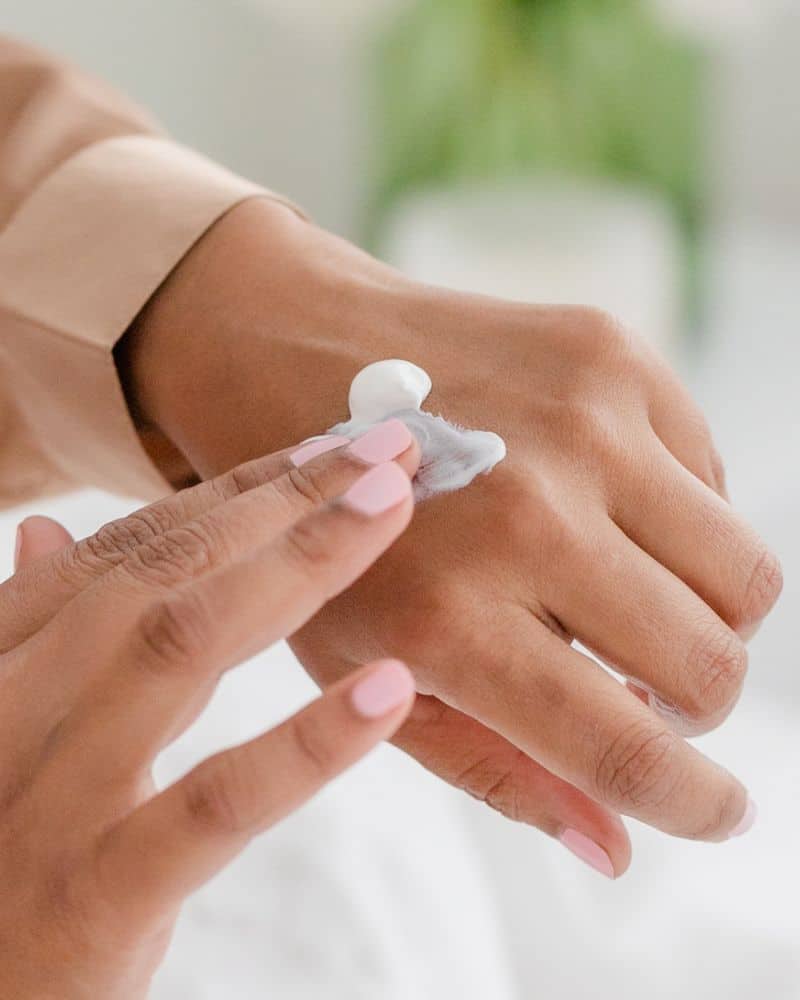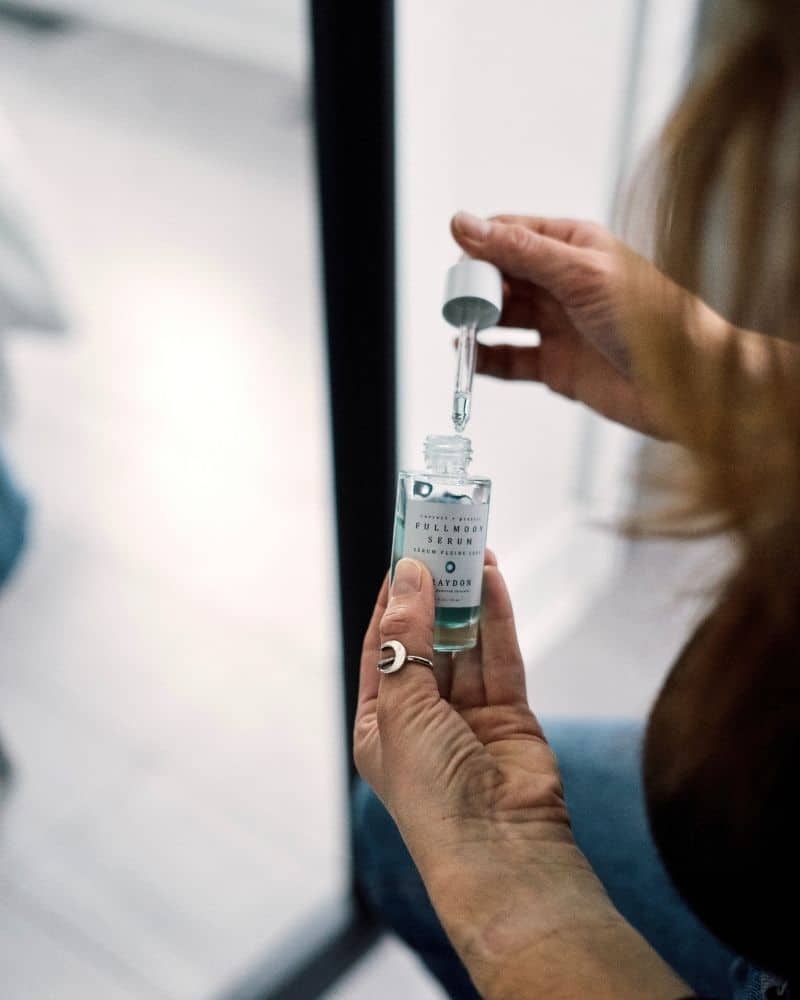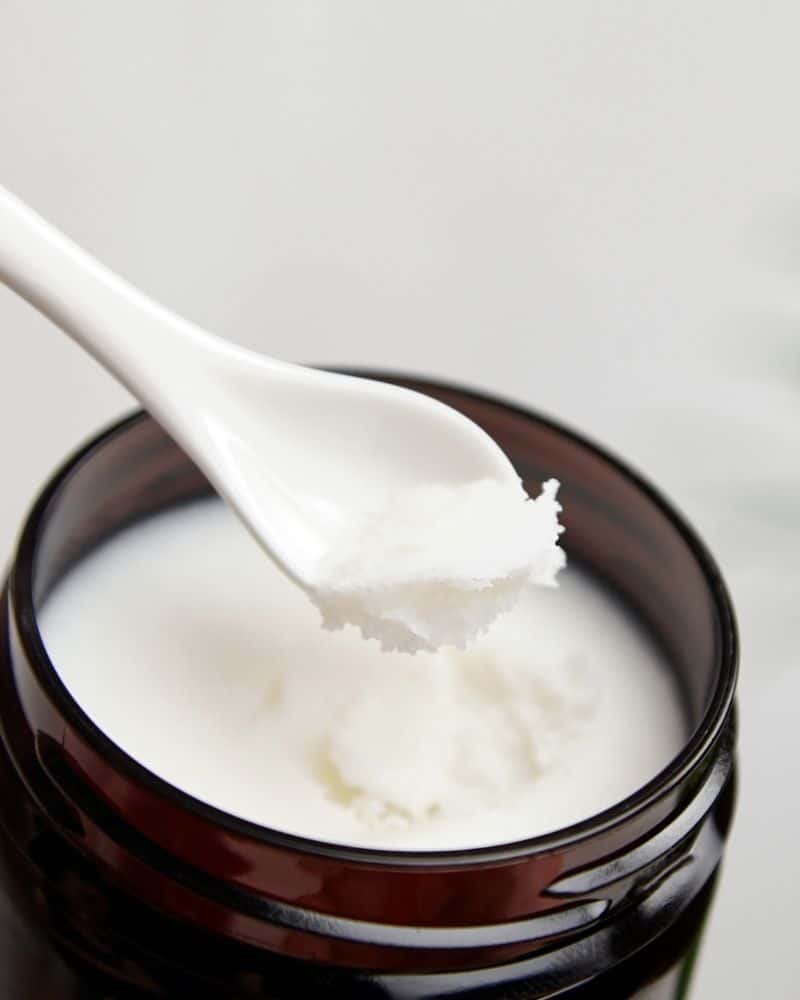Does Jojoba Oil Clog Pores?
This post may contain affiliate links.

Jojoba oil is commonly referred to as the “holy grail” oil for all skin types because of its similarity to the natural oils our skin produces. It’s been shown to help with skin conditions such as eczema and dermatitis. Jojoba oil is structurally and chemically very similar to the sebum that our skin produces, which makes it an excellent natural moisturizer. But before you start incorporating it into your skincare routine, you may be wondering: does jojoba oil clog pores? Keep on reading for an in-depth look at the comedogenicity of jojoba oil.
What Is Jojoba Oil?

Jojoba (pronounced ho-HO-ba) oil is a natural oil that’s extracted from the Jojoba plant. The Jojoba plant is a shrub that grows in arid regions and produces seeds that contain Jojoba oil. Jojoba plants are native to North America but the oil is now produced all over the world. Jojoba has been used for centuries as a medicine and treatment for skin conditions like psoriasis and acne.
Surprisingly, Jojoba Oil isn’t actually an oil – it’s a wax ester. Although the name is a little misleading, it feels and looks just like an oil, hence the name.
Jojoba oil is very similar to our skin’s natural sebum. This makes it an excellent choice for people with sensitive skin or conditions like acne, eczema, and psoriasis. Jojoba oil can be used as a cleanser, moisturizer, makeup remover, and more.
It is known for its anti-inflammatory properties, and it’s ability to soothe inflammatory skin conditions like dermatitis, psoriasis and eczema. It’s also rich in omega fatty acids, vitamins and minerals.
Benefits Of Jojoba Oil
- Moisturizing – Jojoba oil is an excellent moisturizer for all skin types, even oily skin. Jojoba oil can help to balance the natural oils in your skin, keeping it hydrated without making it greasy
- Anti-microbial – Jojoba oil has anti-bacterial and anti-fungal properties, making it a great choice for acne-prone skin
- Anti-inflammatory – Jojoba oil is known to be anti-inflammatory which means it can help soothe skin, reduce irritation and redness and calm inflammation
- Soothing – Thanks to its high concentration of Vitamin E, Jojoba oil is very soothing and is a great choice for sensitive skin types because Vitamin E is known to calm inflammation and soothe the skin
- Anti-oxidant – Jojoba oil is also rich in Vitamin E and other antioxidants which help to protect the skin from free radical damage, environmental stressors and premature aging
- Wound Healing – Jojoba oil is a great oil to promote and speed up wound healing
- Can Treat Skin Conditions – Studies show that jojoba oil is one of the best oils to treat inflammatory skin conditions like dermatitis and psoriasis
- Nutrient Rich – Jojoba oil packed with vitamins, fatty acids, triglycerides, flavonoids and so much more. Basically it’s full of amazing compounds that can keep skin healthy
- Barrier repairing – Jojoba oil has been shown to help repair the skin’s natural barrier, which helps to keep moisture in
The Comedogenicity Scale
So if you’re wondering will jojoba oil clog my pores? Before we dive into that, we need to take a look at the comedogenicity scale. This is a measure of how likely an ingredient is to clog pores.
The scale goes from 0 – 5, with 0 being non-comedogenic (meaning it won’t clog pores) and 5 meaning it is highly likely to clog pores.
The comedogenic scale simply measures how likely a product or ingredient will clog pores. Here is the comedogenicity scale:
The comedogenic scale ranges from 0-5.
0- Does not clog pores
1- Low chance of clogging pores
2- Moderately low chance of clogging pores
3- Moderate chance of clogging pores
4- Fairly high chance of clogging pores
5- High chance of clogging pores
In general, anything that’s rated 0-2 should be fine to use and shouldn’t cause any major issues. The big thing for acne-prone skin is to be cautious with anything rated a 4 or 5.
However, it’s important to note that just because a product has a low comedogenicity rating, does not mean it won’t clog pores or cause breakouts. And vice versa, just because a product or ingredient has a high comedogenicity rating, does not mean it will clog pores or lead to acne.
Ingredients with a high comedogenicity rating are more likely to cause these problems, while those with a low comedogenicity rating are less likely to do so.
Does Jojoba Oil Clog Pores?

Now back to our main question, can jojoba oil clog pores? The answer is no, jojoba oil does not clog pores. Jojoba oil is considered a non-comedogenic oil. In fact, it’s one of the best oils to use on oily or acne-prone skin types.
Related post: Does Argan Oil Clog Pores?
Does Jojoba Oil Clog Pores On Scalp?
Many people also use jojoba oil on the hair and scalp. It’s a great choice for treating dandruff, dry scalp and promoting hair growth. Jojoba oil is non-comedogenic and safe to use on the hair and scalp, so it won’t clog pores on the scalp or the skin.
What Is the Comedogenicity Rating of Jojoba Oil?
Jojoba Oil has a comedogenicity rating of 2 which means there is a low chance of it clogging your pores. Generally anything rated 0-2 on the comedogenicity scale is considered non-comedogenic.
Can Jojoba Oil Cause Acne?
Now that we know jojoba oil is non-comedogenic, you might be wondering will jojoba oil help acne or could it make it worse? To answer this question we need to take a look at the fatty acid profile of jojoba oil.
The fatty acid profile in oils and butters is extremely important when looking at the likelihood of the product being comedogenic.
In general, linoleic acid is better for oily and acne-prone skin types and can actually help treat acne. This is because oily and acne-prone skin generally have lower levels in linoleic acid in the skin, so supplementing the fatty acid with oils and butters can be beneficial. Oleic acid is best used for drier skin and can lead to clogged pores and acne.
Fatty acid composition of jojoba can vary slightly depending on the source, but here are the general numbers:
Eicosenoic acid – 73%
Erucic acid – 15%
Oleic acid – 8%
As you can see, jojoba oil is mostly made up of Eicosenoic Acid, which is why it so closely resembles the structure of our skin’s natural sebum. There’s also a low concentration of oleic acid, which is good because oleic acid has been shown to promote the growth of acne causing bacteria and it can even lead to clogged pores and acne.
It’s highly unlikely that jojoba oil would cause acne or make acne worse. Since jojoba oil is so low in oleic acid and it’s so similar to our skin’s natural sebum, it’s actually a great choice for those with oily or acne-prone skin types. It can help balance oil production, unclog pores, and even treat and prevent breakouts.
Is Jojoba Oil Safe For Acne Prone Skin?
Overall, yes jojoba oil is safe for acne prone skin. It has a non-comedogenic rating and its fatty acid profile is beneficial for those with oily or acne-prone skin types. Jojoba oil can help to balance oil production, kill acne causing bacteria and speed up healing of acne. It’s an incredible anti-inflammatory oil, which can help to reduce inflammation associated with acne.
Since jojoba oil is so similar to the sebum our skin produces, there is an extremely low chance of jojoba oil clogging pores or causing acne. Since it’s so similar in structure to our skin’s oil, when you apply jojoba oil, your skin will just think it’s its own sebum so you shouldn’t have any issues.
Related post: Does Almond Oil Clog Pores?
How To Use Jojoba Oil On Face

Now if you’re wanting to start using jojoba oil in your routine, there are a few different ways you can do so:
As a cleansing oil – Simply massage a small amount onto dry skin to remove makeup and dirt, then rinse off with warm water and follow with a regular cleanser to remove any residue
As a facial oil – As the last step in your skincare routine, apply a few drops all over the face and massage in gently. You can also mix a few drops into your moisturizer.
As a spot treatment – Apply a small amount directly onto active acne or acne scar to help treat inflammation, kill bacteria and fade hyperpigmentation.
As a mask – Mix black seed oil with another ingredient like aloe vera or honey to create a soothing and clarifying mask and leave on for 15-20 minutes and wash off
Does Jojoba Seed Oil Clog Pores FAQ’s
Can I Use Jojoba Oil on my Face Every Day?
Yes, pure Jojoba Oil is suitable for daily use, particularly for those with dry skin. You can use the oil twice a day after cleansing. If you want super hydrated skin, you can also use the oil as a moisturizer.
Is Jojoba Oil Good for Large Pores?
Jojoba oil can’t shrink pores, but keeping your skin moisturized and your pores clear can help to reduce the appearance of large pores. Since jojoba oil won’t clog pores, you won’t have to worry about it causing your pores to look bigger.
Can Jojoba Oil Cause Purging?
Jojoba oil does not cause purging because it does not contain active ingredients like salicylic acid that unclog pores or exfoliate the skin.
Does Jojoba Oil Clog Pores Wrap Up
Jojoba oil has so many benefits for the skin, including balancing oil production, reducing inflammation, and treating acne. It is considered non-comedogenic and its fatty acid composition is beneficial for those with oily or acne-prone skin types. Jojoba oil is safe to use on the face daily and it won’t clog your pores or cause acne since it’s so similar to our skin’s natural sebum. It’s special for this reason, making it one of the most safe oils to use, even on oily, acne-prone and sensitive skin.
